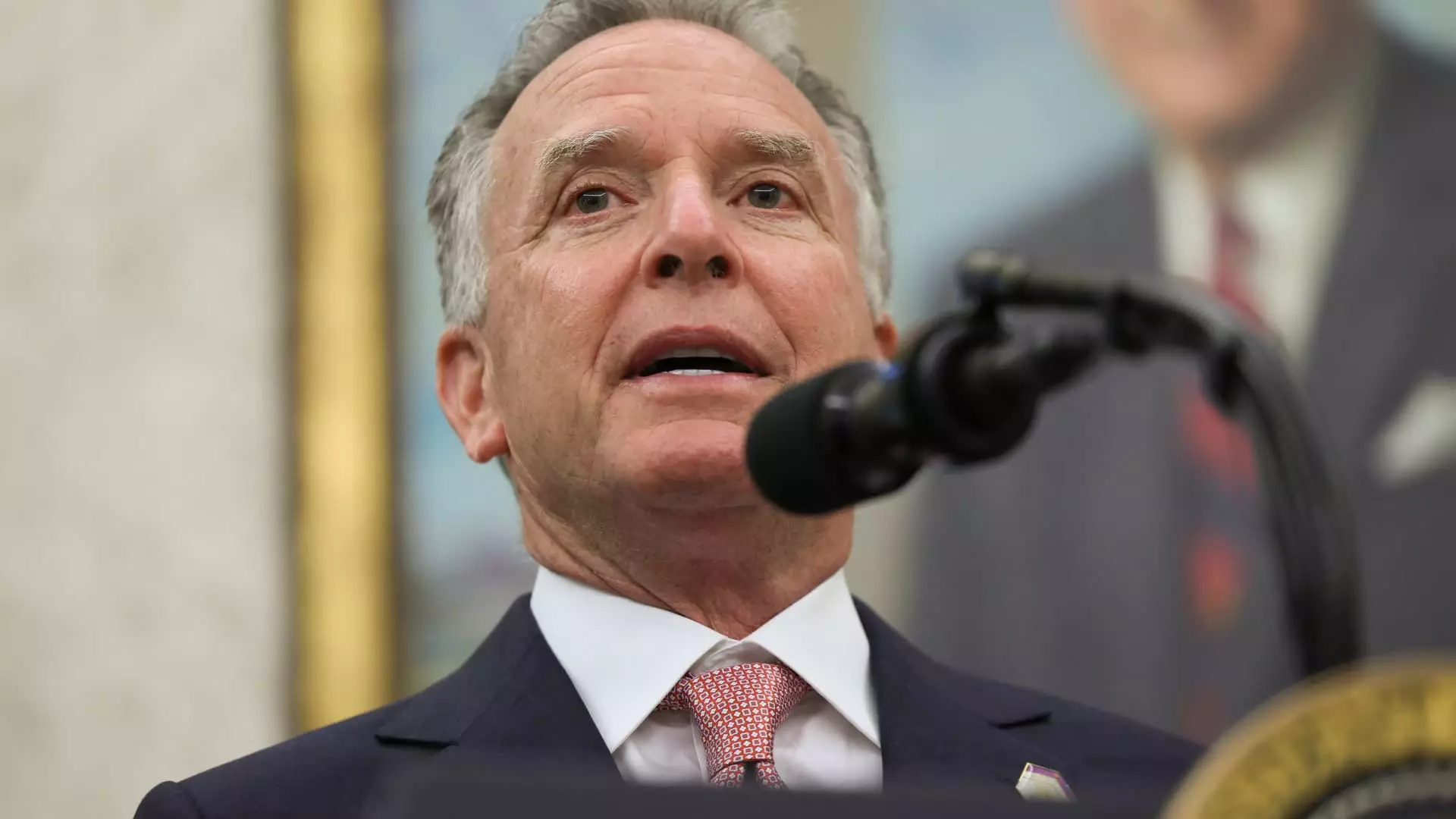In recent geopolitical developments, the narrative has shifted towards a hopeful, yet highly questionable, promise from Russia to the West: an agreement to offer Ukraine security guarantees akin to NATO’s Article 5. This revelation, delivered by U.S. special envoy Steve Witkoff, suggests that Vladimir Putin has conceded to the idea that Ukraine could receive collective defense assurances—an unprecedented move considering Russia’s long-standing opposition to NATO’s eastward expansion. However, this apparent breakthrough paints a portrait of diplomatic optimism that ignores the deeper, more complex realities of the conflict and the nature of Russian diplomacy.
While such a promise—if genuine—could theoretically serve as the foundation for peace negotiations, it raises serious doubts. Russia’s history of strategic deception and the Kremlin’s inconsistent rhetoric suggest that contingency plans to backtrack on such commitments are almost inevitable. Putin’s past actions demonstrate a willingness to bargain over superficial concessions while maintaining the strategic goal of undermining Ukrainian sovereignty and weakening Western influence. Trusting Russia at face value, especially on matters as consequential as Ukraine’s security, is dangerously naive. It risks creating a false sense of hope that could stabilize the region temporarily but fail to address the fundamental issues that perpetuate war.
The Mirage of a Democratic Path to Tranquility
European leaders appear to accept the idea of security guarantees as a sign that diplomatic engagement is still viable. Ursula von der Leyen’s welcoming tone signals Europe’s desire to participate in a process that could finally bring peace. Yet, the core problem persists: how can meaningful guarantees be made when one party, Russia, has historically shown a blatant disregard for international commitments? Guaranteeing Ukraine’s land, air, and sea security with Western backing is critical, but such assurances amount to little more than ink on paper if Russia perceives them as temporary or empty threats.
President Zelensky’s emphasis on practical security measures underscores Ukraine’s war-weariness and desire for tangible protections. While Ukraine’s aspirations to join NATO remain a central cause of Russian hostility, Western powers are increasingly attempting to thread a delicate needle—presenting themselves as both peacemakers and defenders of Ukraine’s sovereignty. But pragmatism demands we recognize that any solution offering security guarantees must be rooted in credible enforcement mechanisms, not mere diplomatic rhetoric. Otherwise, these guarantees risk becoming new ‘promises’ that Russia can exploit to lull Ukraine into complacency, only to resume aggression once Western attention wanes.
The Illusion of a Peace Deal Amidst the Power Struggles
The recent high-level meetings between President Trump and Vladimir Putin, occurring amid ongoing conflict, reveal the complexities of diplomatic negotiations cloaked in strategic ambiguity. Trump’s assertive push for a peace process centered on direct negotiations signals a departure from traditional Western reluctance to accept negotiations that undermine Ukraine’s territorial integrity. However, his public declarations and the scant details about these conversations serve as a reminder that diplomacy can often be a game of appearances, where the real motives are obscured by political calculations.
The notion that Russia might be indirectly signaling moderation is an optimistic interpretation at best. Given Putin’s pattern of tactical flexibility, it’s more plausible that any concessions are tactical maneuvers designed to divide the West or buy time. Meanwhile, Ukraine remains firm in its refusal to acknowledge territorial losses or recognize Russian-occupied regions as legitimate parts of Russia. Zelensky’s insistence on defending all of Ukraine’s territory highlights the fundamental gap in ambitions: for Ukraine, sovereignty and integrity are non-negotiable, whereas Russia’s recent rhetoric and diplomatic posture suggest a willingness to accept compromises that would reshape Ukraine’s borders.
The Dangerous Gamble: Trusting a Fragile Construct of Guarantees
The most troubling aspect of these negotiations is the West’s eagerness to place faith in Russia’s promises. The assumption that Putin’s regime will abide by commitments to avoid further invasions overlooks a significant pattern of deception and opportunism. Historically, Moscow has exploited periods of negotiation to rearm, regroup, and strike when least expected. Relying on Russian assurances effectively hands them the diplomatic initiative—the possibility that they will honor these commitments, especially after they’ve previously violated treaties, is extremely slim.
European and American leaders must grapple with the uncomfortable reality that peace may not be achieved through diplomacy alone, especially when one side perceives conflict as a tool for strategic gain. Europe’s involvement must include a realistic assessment of security, robust defense policies, and a willingness to uphold military and economic resilience against potential Russian breaches. Simply betting on a “peace at any cost” approach risks emboldening Russia, making future conflicts even more damaging. Peace cannot be based on fragile promises but on concrete, enforceable actions backed by strong alliances and a shared understanding that sovereignty and democratic independence are non-negotiable rights.
Beyond the Illusions: Rethinking the Path Forward
As the Biden administration and European leaders entertain these fragile negotiations, they must remain critically aware of the underlying risks. The temptation to prematurely endorse any form of peace that discounts Ukrainian sovereignty could set a dangerous precedent, encouraging similar behavior from revisionist power centers worldwide. A pragmatic approach must prioritize Ukraine’s right to self-determination, sustained military support, and strategic deterrence—elements that cannot be sacrificed for the illusion of rapid diplomatic resolution.
A peace process that seeks to reconcile the interests of Russia, Ukraine, and Western powers requires a level of skepticism and resilience that cannot be understated. It involves not only negotiations but also the preparedness to hold Russia accountable if and when it breaches agreements. Without this, the promises of security guarantees are nothing more than paper shields—vulnerable to the winds of Kremlin manipulation.
The challenge is to pursue diplomacy with eyes wide open, recognizing that lasting peace depends on strength, vigilance, and unwavering commitment to international law and Ukrainian sovereignty—values that must be defended fiercely, regardless of temporary diplomatic victories.


Leave a Reply